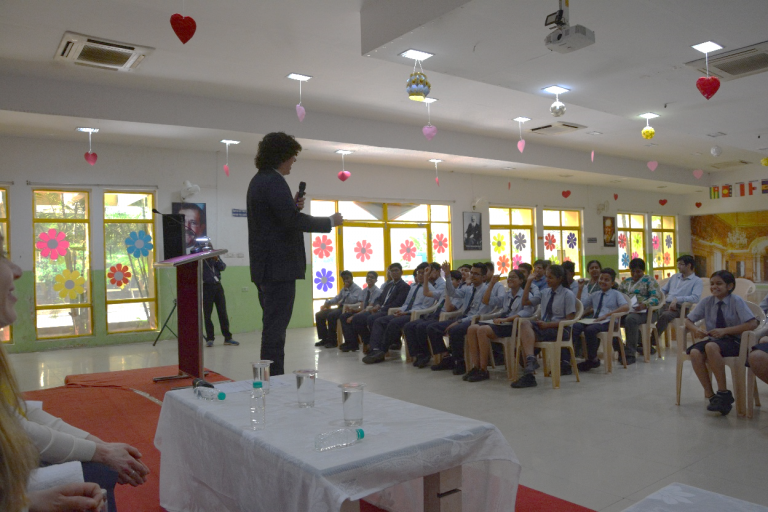Sustainable and healthy food choices: inspiring debate with school children in India
Why do we eat what we eat?
Because it tastes good?
Because it’s important for our health?
Because our diets represent our culture and traditions?
Because we care about the future of our planet?
These are the questions academics from the London School of Hygiene & Tropical Medicine, the University of Aberdeen and KIIT University posed to teenage students at the KIIT International School in Bhubaneswar; a fully residential and co-educational high performing school, led by the dynamic and chairperson, Dr Mona Lisa Bal.

The 40 enthusiastic students split into four debating teams to formulate arguments in support of distinct reasons behind dietary choices: to conserve India’s cuisine; to promote health; to reduce diet-related greenhouse gas emissions; or to reduce diet-related water use. The student’s existing knowledge on the topic was enormously impressive, for example they recognised what constitutes a healthy diet and understood some of the causes and effects of climate change.

The debate kicked off with the team extolling the importance of India’s unique cuisine. This team believed diets were a representation of who we are, identifying the value of food in sharing cultural knowledge and even having the potential to forge international relationships.
The health team stressed that consuming balanced diets is the most important thing for a happy, healthy and fulfilled life. They noted that at the population level, good nutrition can ensure a strong and efficient work force, it’s the backbone of life – as most of the researchers in the room were nutritionists, we couldn’t argue with that!
The third group stated that if we don’t make changes to the way we produce food and change the types of foods we eat the resulting greenhouse gas emissions will be catastrophic for the planet. This will affect our future ability to produce food, both reducing the amount and the quality of food available, and ultimately impact human health and the income of agricultural workers – earning a large cheer from the audience!
Last but not least was the water group who eloquently reasoned that without water, there would be no food production in the first place, and therefore the most important factor we must think about for our diet is its impact on water resources. The students were aware that water scarcity in India is becoming an increasing concern, and if changes aren’t made soon, this could dramatically effect agricultural production, food security and even the nation’s economy.
The academics taking part in the event were all part of the Wellcome Trust-funded Sustainable and Healthy Diets in India project (SAHDI) that aims to define realistic, healthy dietary choices that could reduce the environmental impacts of India’s food system. Agricultural production in India accounts for 90% of water use, and as water security is posing an increasing risk, our recent work has focused on reducing water use. It was amazing to see the students so engaged and passionate about the environment and food. The winner in the end was the water group (promise we weren’t biased!).
The depth of understanding of the students at KIIT International School was extremely impressive. It was amazing to see a group of teenagers engage so deeply in such a tricky concept, even stating that making sustainable food choices was part of their social responsibility as the food we eat has implications beyond our immediate environment. It was a fantastic experience for us academics too – we certainly learnt a lot about the value of food for this group of young adults, and greatly enjoyed our time.

